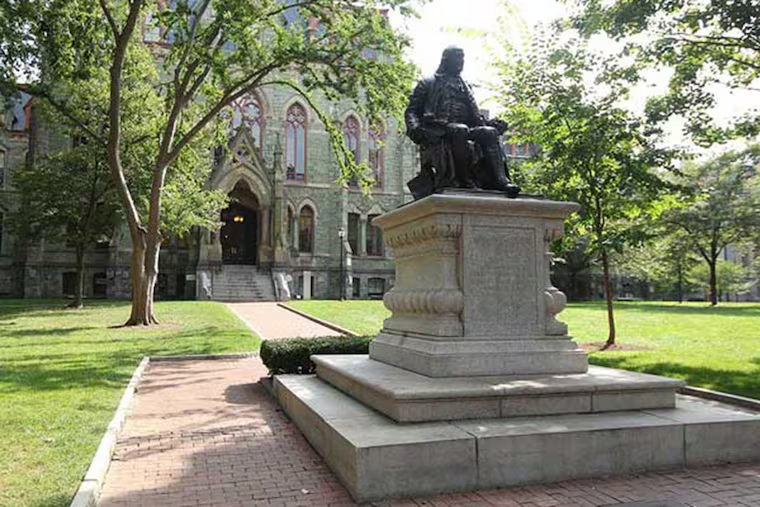Penn moves mental health and wellness programs under the direction of the provost
Two months after the director of its counseling and psychological services center died by suicide, the University of Pennsylvania on Tuesday announced changes to the oversight of its health and wellness programs, including its counseling center.

Two months after the executive director of its counseling and psychological services center died by suicide, the University of Pennsylvania on Tuesday announced changes to the structure and oversight of its health and wellness programs, including its counseling center.
The university will integrate all of its health and wellness programs, including its counseling and psychological services, into a new “health and wellness” unit under the provost’s office, president Amy Gutmann and provost Wendell Pritchett said in an email to the Penn community.
The new unit, the leaders said, will be directly overseen by Pritchett, the top academic officer at the institution, in partnership with Benoit Dubé, the chief wellness officer, who will become an associate provost. And, they said, health and wellness will more fully be integrated into the university’s educational mission.
“Wellness, as you know, is one of our highest priorities for the Penn campus,” Gutmann and Pritchett wrote.
The announcement did not mention Gregory Eells, a nationally known mental health leader, who died at his Center City residence in September, shocking the Penn campus, which also had been shaken in recent years by student suicides. Eells, who formerly led counseling services at Cornell University, had only worked at Penn for about six months.
Gutmann and Pritchett said the new structure will “create more effective partnerships with the vitally important wellness and work/life balance programs developed in human resources for our faculty and staff.”
The new structure also will give the university’s clinicians more time to focus on helping students and reduce the time spent on administration, the leaders said. And it will bring together services to better support students struggling with alcohol or drugs, they said.